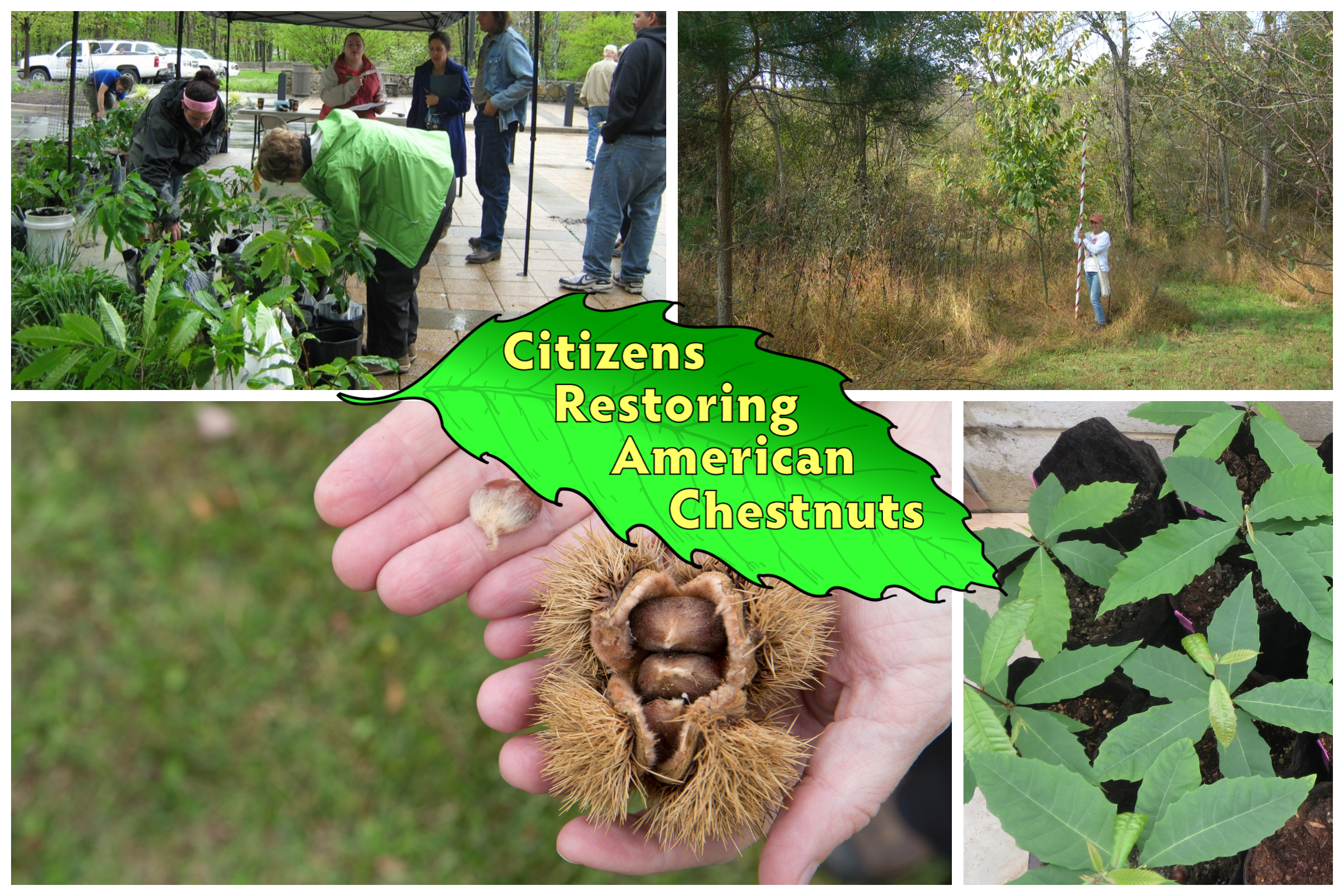
Citizens Restoring American Chestnut Project Description
Originally funded by the Chesapeake Bay Trust, the Citizens Restoring American Chestnuts (CRAC) project represented a partnership between the American Chestnut Foundation (TACF) and the Appalachian Laboratory of the University of Maryland Center for Environmental Science. Over the period of two years, the project distributed seeds and seedlings obtained from different American chestnut sources to interested community members throughout western Maryland.
In exchange for the seeds and seedlings, community members agreed to report back to scientists at the Lab on the overall health, growth, and survival of their trees. In this way, community members took on the role of citizen scientist, playing an integral part in the success of the project. The project's citizen scientists continue to report on their trees, creating a rare and invaluable long-term dataset and providing scientists an opportunity to study the trees through maturity.
We hope to once again expand the program in collaboration with TACF and to collaborate with the Garrett County Forestry Board to pollinate local trees for planting in orchards and through CRAC participation. We will continue to look for funding to maintain and expand our efforts - from pollinating a few chestnut trees, to developing seed orchards, to examining the chestnut genome for ways to discern local adaptation.
Message from Education Coordinator on Fieldscope Update- July 2020
From Cassie Doty, Education Coordinator for the Citizens Restoring American Chestnuts project:
Exciting news! The Citizens Restoring American Chestnuts FieldScope site has been updated and is now available on mobile devices. That means you can enter your data right there next to the chestnut tree where you collect it! It’s browser-based, so it doesn’t matter what operating system you're using (that means you can use it on an iPhone, Android phone, iPad, tablet, etc. - no matter the brand). It works best using popular browsers like Chrome, Safari, and Firefox.
The new URL is https://chestnuts.next.
To look at everyone’s observations – or just your own – on a map, click on Data in the navigation bar at the top of the page. Click on the tri-fold map icon in the upper left-hand corner of the map to choose the map data you want to view (i.e., basemaps, boundaries, physical geography, or human geography).
If you get stuck, click the "?Help" button in the bottom right corner of the page or in the navigation bar at the top of the page. If you need additional guidance, just message us on Facebook (Citizens Restoring American Chestnuts). We're looking forward to your observations!
Project Information
October 2018 PowerPoint Presentation by Dr. Katia Engelhardt, Citizens Restoring American Chestnuts Science Lead

